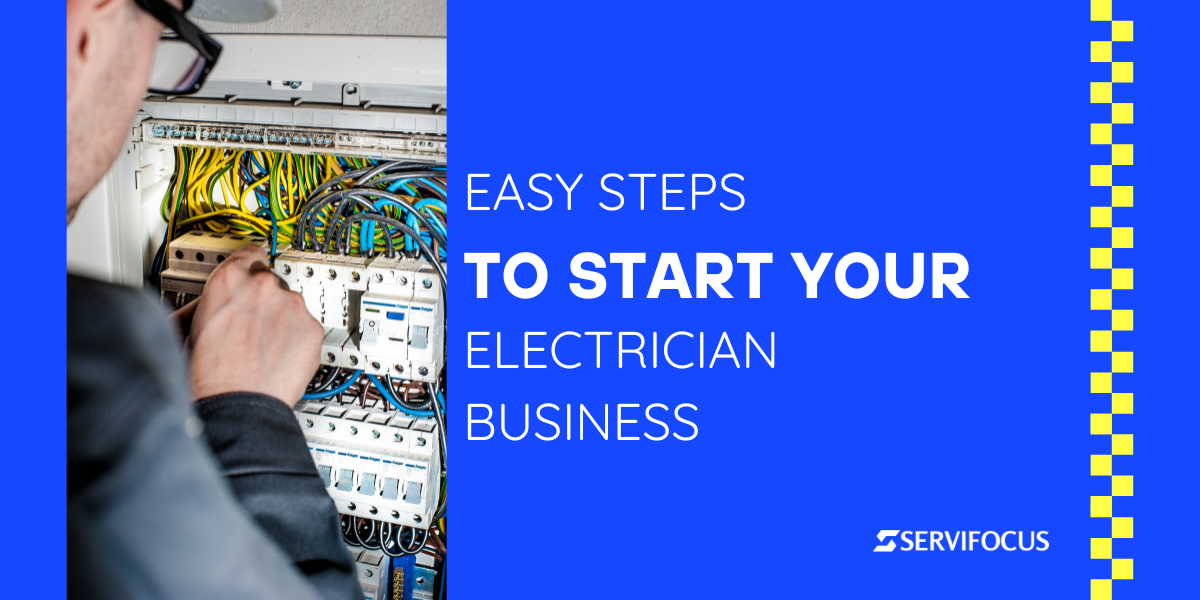Starting your own electrician business can be both rewarding and profitable. With a growing demand for electrical services across residential, commercial, and industrial sectors, now is the perfect time to establish your business. Whether you’ve just completed your electrician training or you’re looking to take the leap into business ownership, this guide will walk you through the essential steps for starting your own electrician business.
In this blog, we will outline everything from getting licensed to marketing your services, providing actionable steps to help you get started.
Introduction: Why Start an Electrician Business?
Electricians are always in demand, and as technology evolves, there’s never been a better time to start your own business. From high wages to a wide range of business opportunities, electricians enjoy numerous advantages. Whether you’re working on residential homes, commercial properties, or large-scale industrial projects, electricians play a vital role in maintaining infrastructure.
Let’s explore the steps required to launch a successful electrician business.
1. Gain the Necessary Qualifications and Experience
Becoming a licensed electrician requires formal education, hands-on training, and passing exams. Before starting your business, it’s essential to ensure you have the proper qualifications.
- Complete an Apprenticeship Program: Most electricians complete an apprenticeship program that provides hands-on experience while working under the supervision of a licensed electrician.
- Obtain a License: Licensing requirements vary by region, so make sure you check what’s required in your area. Passing an exam on electrical codes and regulations may be necessary.
- Specialize in Your Field: Specializing in areas like renewable energy systems or smart home installations can help you stand out from the competition.
2. Develop a Strong Business Plan
A business plan is essential for outlining your goals and strategies as you start your electrician business. It’s also a key requirement if you plan to seek funding from banks or investors.
- Define Your Target Market: Decide whether you’ll focus on residential, commercial, or industrial projects, or even specialize in areas like solar energy or electrical repairs.
- Estimate Startup Costs: Your business plan should outline all initial costs, including tools, vehicles, insurance, and licensing fees.
- Set Realistic Goals: Include short-term and long-term goals for growth, like acquiring a certain number of clients or expanding into larger projects over time.
3. Register Your Business and Obtain Insurance
Registering your business is one of the first legal steps you need to take when starting your electrician business. The structure of your business (sole proprietor, LLC, or corporation) will determine how you are taxed and how much personal liability you assume.
- Business Registration: Choose a business name and register it with the relevant local authorities. If forming an LLC or corporation, file the necessary paperwork.
- Obtain Insurance: Liability insurance is crucial for electricians to protect against accidents, property damage, and legal issues. General liability insurance, worker’s compensation, and commercial vehicle insurance are all important for your business.
- Get the Necessary Permits: Ensure you meet local requirements for permits, especially for larger commercial jobs or new installations.

4. Invest in Tools and Technology
Having the right tools and technology is essential for running an electrician business. While many tools are industry-standard, you may need to invest in specialized equipment depending on your services.
- Essential Tools: Your toolkit should include wire cutters, multimeters, voltage testers, screwdrivers, pliers, and other electrical tools. Investing in high-quality tools ensures reliability and safety on the job.
- Commercial Vehicles: A reliable van or truck is essential for transporting your tools and equipment to job sites.
- Business Software: Digital tools that help with scheduling, invoicing, and project management can streamline your operations and boost efficiency. Field service management software, such as ServiFocus, https://servifocus.com/helps you manage clients and tasks efficiently.
5. Market Your Electrician Business
Once you’re ready to offer services, promoting your business is key to attracting clients. Digital marketing is one of the most effective ways to generate leads and grow your electrician business.
- Create a Website: A professional website is crucial for gaining visibility in search engine results. Make sure your site is optimized for SEO and includes your services, contact details, and customer reviews.
- Leverage Google Business Profile: Claim and optimize your Google Business Profile to ensure your business appears when potential clients search for electricians in your area.
- Social Media Marketing: Use platforms like Facebook and Instagram to promote your work, share client testimonials, and engage with local communities.
- Network Locally: Attend trade shows, join industry associations, and connect with property managers, builders, and real estate agents to expand your network.
Conclusion: Take Control of Your Electrician Business
Starting an electrician business can be a fulfilling and profitable career path. The key to success lies in gaining the right qualifications, creating a strong business plan, registering your business properly, and marketing your services effectively.
Remember, building a successful business takes time, but with dedication and the right strategies in place, you can grow a thriving electrician business that serves your local community.
Frequently Asked Questions (FAQs)
1. How much can I earn as an electrician?
Earnings for electricians vary depending on experience, location, and specialization. Entry-level electricians can earn a comfortable salary, while experienced electricians with their own business often see significantly higher income, especially as their client base grows.
2. Do I need a business license to start an electrician business?
Yes, in most cases you will need to register your business and obtain a business license in addition to an electrical license. Be sure to check local regulations for specific licensing requirements in your area.

